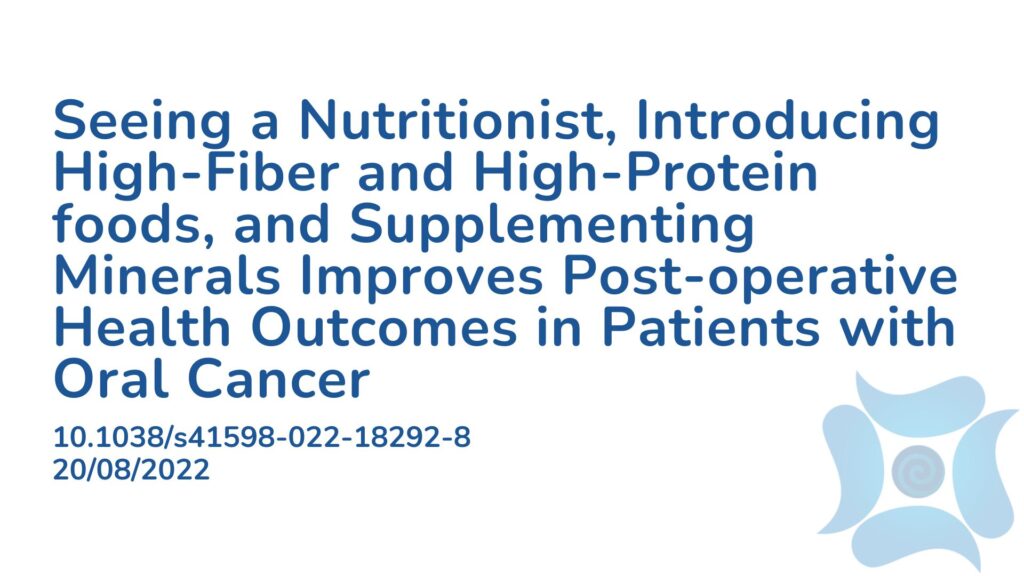Summary:
Data shows that up to 50% of patients with head and neck cancer have already reported weight loss at the point of being diagnosed. Nutrition therapy during the diagnosis and treatment process is critical, as well as understanding the role of macro- and micronutrients during the postoperative cancer period. The reduced food intake associated with cancer therapy, combined with increased nutritional requirements can lead to weight and muscle loss which promotes further morbidity and mortality. To better understand immune defense and wound healing, the aim of the study was to investigate the role of postoperative nutritional intervention in patients with oral cancer. From the first postoperative day, patients were assigned to a nutrition professional, given additional high-fiber and high-protein food and given micronutrient supplementation based on their blood tests results for further nutritional support. The results suggested that patients with oral cancer will benefit from postoperative nutritional support including supplementation of zinc, calcium and vitamin D. Some patients displayed weight gain which reduces risk of muscle wastage. Vitamin D and a high-protein diets were also associated with muscle protection and wound healing, as well as vitamin D having anti-inflammatory impacts. Introducing a higher-fiber diet also reduced gastrointestinal complaints. Patients receiving a high-fiber and high-protein diet also showed they were more capable of physical activity.
Abstract:
Extensive surgical treatment of oral cancer results in significant deterioration of nutritional status with concomitant increased nutrient requirements. The consequences are an elevated risk of postoperative complaints as well as morbidity and mortality. The aim of this study was to investigate an additional postoperative nutritional intervention through professional nutritional advice and nutritional supplementation in patients with oral cancer for at least six months. 62 patients with oral cancer in the department of oral and maxillofacial surgery were randomized into two groups. The intervention group received nutritional supplements, protein-rich, high-fiber diet and care by a professional nutritionist in addition to the standard treatment. The control group received only the standard treatment. Statistical analysis includes the evaluation of means and standard deviations as well as the calculation of p values with a significance level of 0.05. A deficiency of protein, albumin, vitamin D, zinc and iron was noticed in both groups immediately after surgery. Patients in the intervention group recorded significantly less weight loss (pT2 = 0.0031, pT4 = 0.0424), a more stable BMI (pT2 = 0.0496), better values for albumin (pT2 = 0.0265), vitamin A (pT3 = 0.0248, pT4 = 0.0007) and calcium (pT3 = 0.0362) during the follow-ups. The patients in the intervention group showed significantly fewer digestive problems (p = 0.0062) and muscular complaints (p = 0.0448). They showed better eating habits (p = 0.0348) and were capable of more physical activity (p = 0.0045) than patients in the control group. Patients with oral cancer can have a benefit from postoperative nutritional intervention. Early screening, appropriate care by a nutritionist and supplementation with vitamin D, zinc, calcium and protein-rich food are recommended.
Article Publication Date: 20/08/2022
DOI: 10.1038/s41598-022-18292-8



